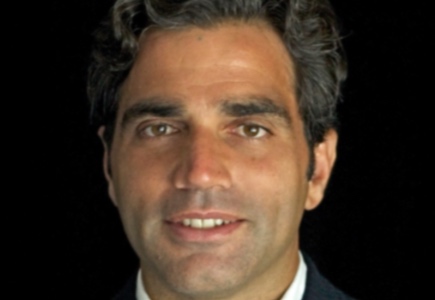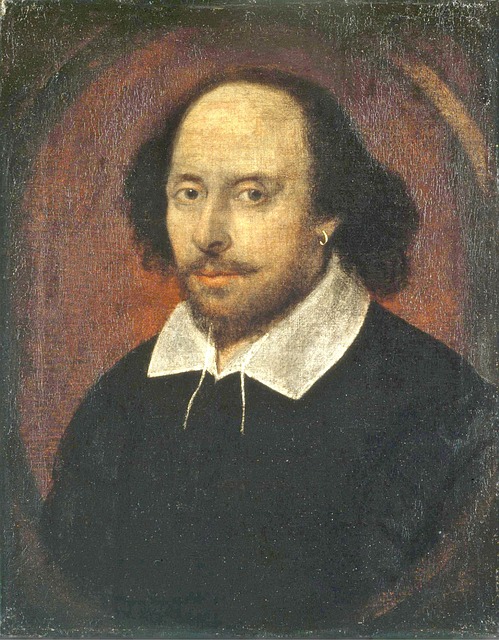By Joseph Luzzi, PhD
Billionaire entrepreneur Peter Thiel’s book Zero to One offers some surprising remarks on literature’s application to the business world, as I mentioned in a recent piece. In discussing sources for understanding market competition, Thiel references Karl Marx and his notion of economic class warfare, which pits groups with different ideas and goals in an eternal struggle. But a better model for understanding conflict, Thiel counters, is Shakespeare, who shows instead how rivals with actually similar agendas can become so obsessed with defeating each other that they end up on a path to destruction. Another author, Tolstoy, also surfaces in Thiel’s reflections on the ideology of competition:
Tolstoy opens Anna Karenina by observing: “All happy families are alike; each unhappy family is unhappy in its own way.” Business is the opposite. All happy companies are different: each one earns a monopoly by solving a unique problem. All failed companies are the same: they failed to escape the competition.
For Shakespeare, combatants can look more or less alike, like the warring Capulet and Montague families in Romeo and Juliet (“Two households, both alike in dignity“); for Marx, people fight because they are different, like Tolstoy’s unhappy families. And just like the rival families in Romeo and Juliet, Thiel writes, Microsoft and Google foolishly spent exorbitant amounts of time and money attacking each other in the 1990s, as each became obsessed with defeating the other (Windows vs. Chrome OS, Bing vs. Google Search, etc.), instead of leaving each other to prosper independently as they had when they were start-ups. Because of their internecine tussle, Apple was able to pass them both and become the world’s richest company. “War is costly business,” Thiel concludes.
Such rivalries result from what Freud called the “narcissism of small differences”: often those with much in common end up focusing on their slight differences and going into mutually harmful struggle over them, instead of emphasizing the things they have in common. Applying this Freudian knowledge of human nature alongside Shakespeare can help us understand one of the more dramatic episodes of the tech revolution, the so-called PayPal Wars of late 1990s. By 1999, Thiel’s PayPal and Elon Musk’s X.com were locked in a furious competition that would have ensured the death of one and the serious damaging of the other had it continued. But as the air was coming out of the first dot-com bubble, Thiel realized that a market crash would destroy both his and Musk’s companies before their battle ended. And by then he also understood that PayPal was more like X.com than different. He refused to succumb to the thinking that led the Capulets and the Montagues into their increasingly deadly feud:
So in early March [2000, Musk and I] met on neutral ground—a café almost exactly equidistant to our offices—and negotiated a 50-50 merger. De-escalating the rivalry post-merger wasn’t easy, but as far as problems go, it was a good one to have. As a unified team, we were able to ride out the dot-com crash and then build a successful business.
Sometimes a fight cannot be avoided, Thiel concedes. But other times, he notes, quoting Hamlet, pride clouds our judgment:
Rightly to be great
Is not to stir without great argument,
But greatly to find quarrel in a straw
When honour’s at the stake.
According to Thiel, Hamlet foolishly defines greatness in terms of a willingness to fight over even the slightest challenge to his personal honor, and thus “to find quarrel in a straw.” “This twisted logic is part of human nature,” Thiel writes, “but it’s disastrous in business.” With his mix of indecisiveness and tetchiness, Hamlet would likely have made a poor CEO.
Building on Thiel’s insights, we see that authors like Shakespeare can be valuable sources for the thinking businessperson because of the following:
- Literature provides a powerful lens on human nature, especially the irrational motives that move us—and that can ruin our businesses, relationships, dreams, whatever we hold so dearly that it can muddy our thinking.
- Great literary works establish “test cases” that we can study to generate models for decision-making, as we connect issues created by the literary imagination to the actual world.
- Works like Romeo and Juliet give a crucial sense of history and perspective. History has a tendency to repeat itself—as Thiel notes in Zero to One, “Extreme founder figures are not new in human affairs. Classical mythology is full of them.” By going back to Shakespeare, he was able to discover something universal about human emotions that illuminated competition in the contemporary marketplace.
Thiel was able to glean these Shakespearean insights because our intellectual and emotional makeup remains similar to what it was when Hamlet and Romeo and Juliet appeared four centuries ago. Technology changes, the gadgets come and go; but love and hate, ambition and competition, vengeance and forgiveness, are the same now as then. And that’s why business leaders today need the literary make-believe from long ago.
Joseph Luzzi (Ph.D., Yale) is Professor of Comparative Literature at Bard College and the founder of DeepRead, a program dedicated to educating leaders through literature and the humanities. His books include “My Two Italies,” a New York Times Book Review Editors’ Choice, and “In a Dark Wood: What Dante Taught Me About Grief, Healing, and the Mysteries of Love,” which has been translated into Italian, German, and Korean. Dr. Luzzi speaks and consults regularly for businesses, corporations, and conferences.
Please go to nslexperience.com and follow @nslexperience to learn more and come along on the learning journey with us.



